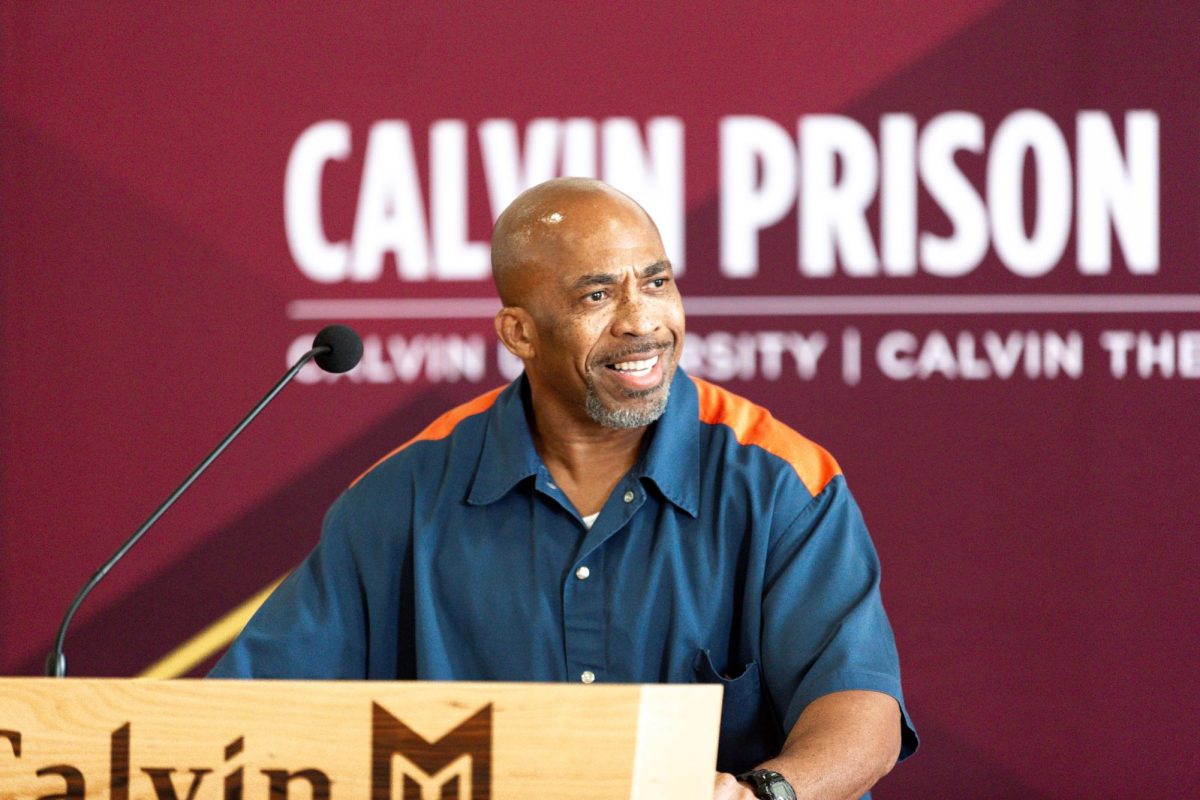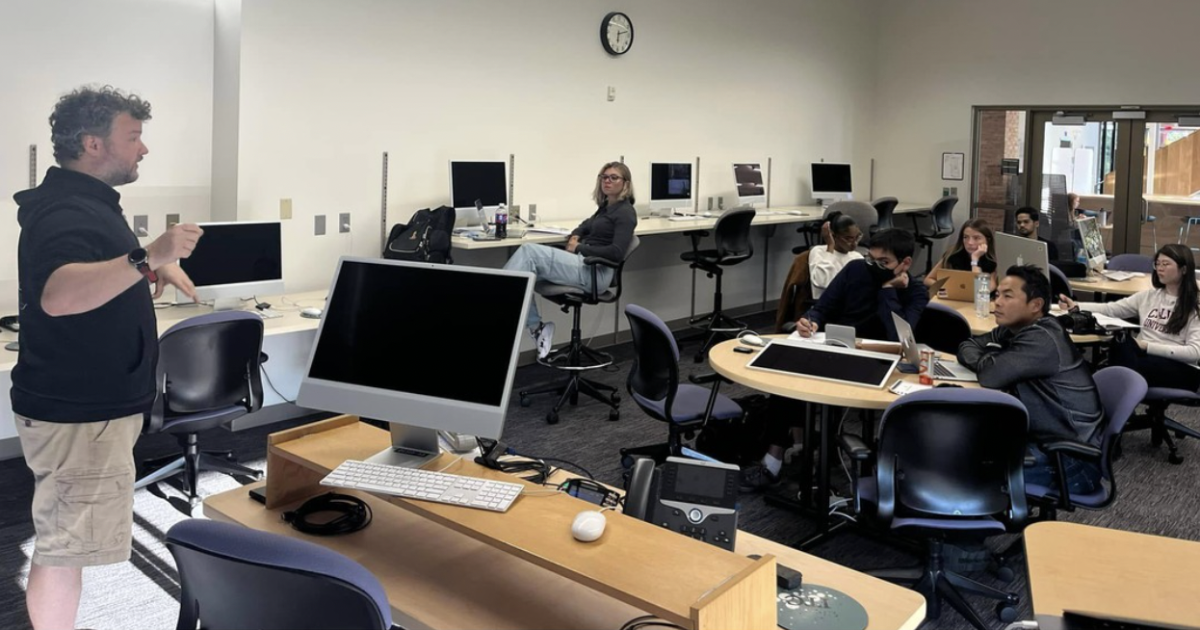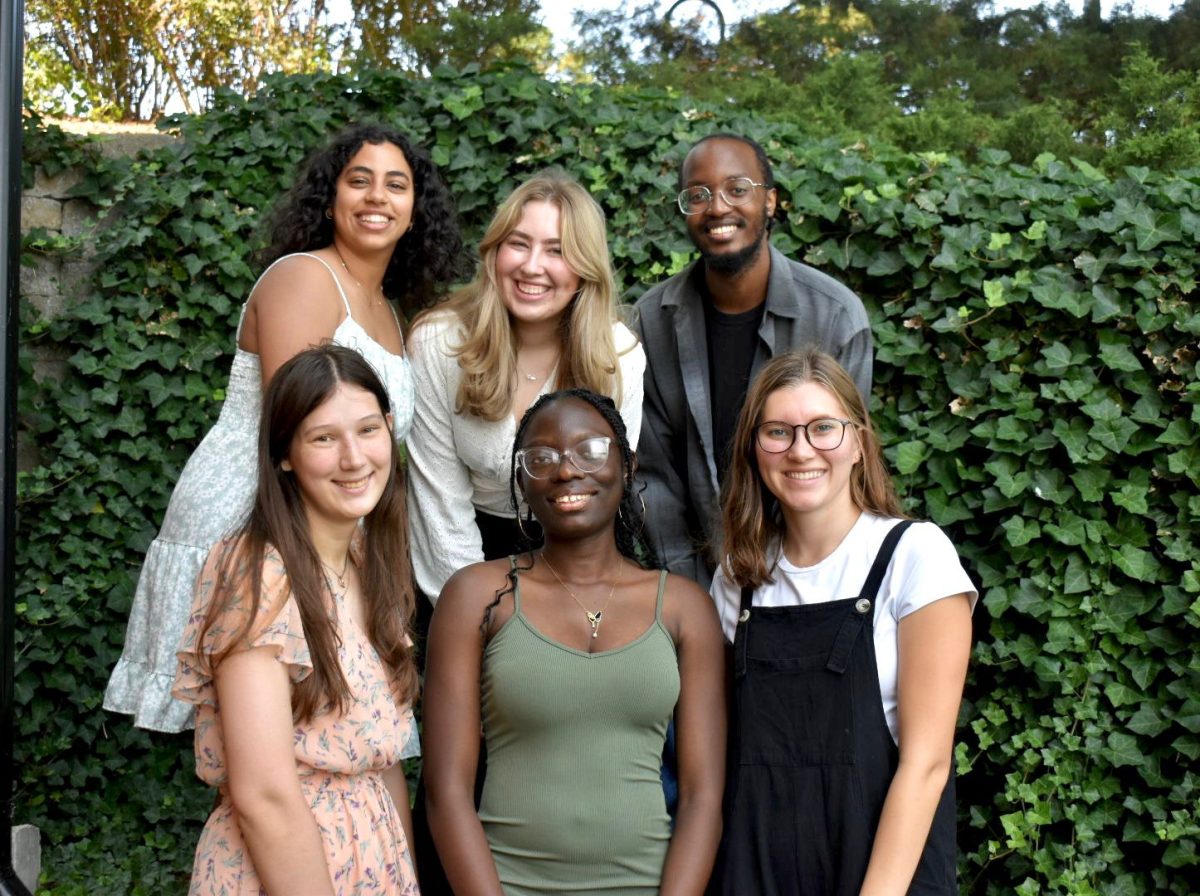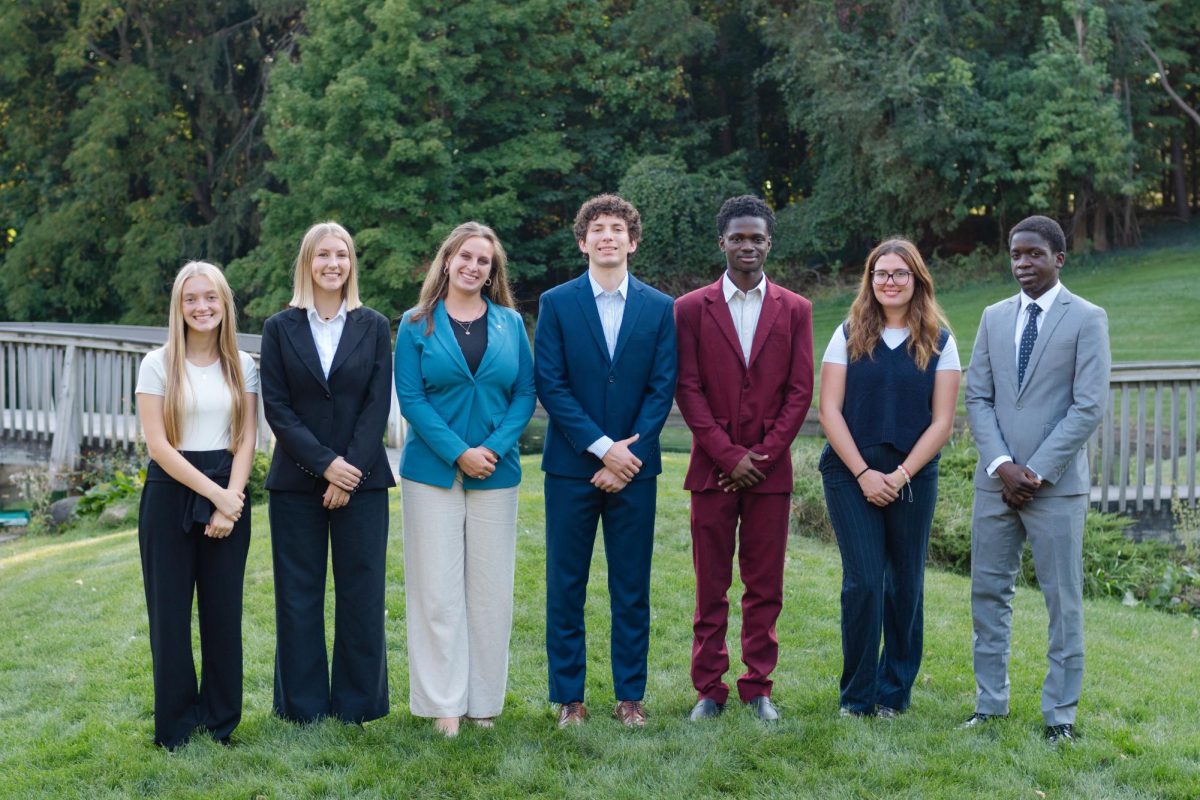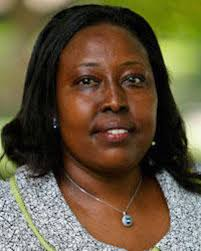Convocation January 2024 provided an opportunity to celebrate the major success in the lives of incarcerated students who are pursuing higher learning as it honored CPI students who earned their Faith and Community Leadership Certificates by completing 30 hours of college courses. Convocation also offered Calvin Theological Seminary, Calvin University and the Michigan Department of Corrections (MDOC) an opportunity to observe the effects of the partnership between the three institutions. Moreover, it was an opportunity for first-time CPI professors like Rev. Dr. Shawn Bawulski and Heather Baker-Jackson to experience this communal solemnization.
The opening remarks were presented by Margaret Mwenda, chief operating officer for Calvin Theological Seminary, who — according to her Kenyan culture — greeted the audience on behalf of those who were unable to attend. She then said she would send the audience’s greeting back. Afterwards, Mwenda shared CPI’s vision of student formation, which includes “equipping students with the skills required to be leaders in community….[as well as] sharing a hope that through the CPI endeavor, prison culture can be transformed to a restorative — as opposed to a retributive –– form of justice.”
CPI provides opportunities for its students to experience being leaders, which could range from leadership in the classroom, in group study sessions and ultimately in their housing units. These places are areas of diverse thoughts and wavering levels of ethical and moral standards, where CPI students are learning to engage this atmosphere with questions that raise awareness and help to integrate their meaning into the journey out of criminality. Being connected in a more spiritually friendly environment — whether it is Christianity, Islam, Judaism or other faiths — allows the CPI students to lean into more painful places and discover how to help and heal the lives of the broken.
Heidi Washington, director of the MDOC, supported this sentiment. “I look forward to these days of celebration because they are inspiring evidence of progress. This CPI opportunity gives its students a better path in which to build better lives within a community that is inspired to strive toward success,” she said. As a CPI student who is incarcerated, hearing these words from the Director of the MDOC gives me a sense of self-worth. Moreover, Washington’s words highlight what is being accomplished through the endeavors of CPI and its many constituents. In essence, this acknowledges how the collaborative effort is valued in society, not just by those of us who remain incarcerated.
These words from the director remind me that there are many prodigious alliances beyond these walls where the CPI is concerned. This is the point of the purposeful words delivered by Kevin R. den Dulk, associate provost for Calvin University, who stated, “I may not teach the CPI students, but [it] is my honor to…talk about CPI to community leaders. I get to talk about how CPI is a pioneering program that has engaged intrepid students. CPI is a culmination of unexpected partnerships between the Calvin Theological Seminary, Calvin University and the Michigan Department of Corrections. CPI is extraordinary in its structure. The MDOC took a risk on this program, and now [that it’s] welcoming its ninth cohort, [the CPI] is proving to be a valuable tool for transformation.”
Dr. den Dulk’s comments on “The Liturgy of the Ordinary,” a book written by Tish Harrison Warren, reminded me that once God becomes involved, the ordinary is transformed into the extraordinary.
Adding to the celebratory occasion was CPI student Derrick Cato, class of 2027, who was a recipient of his certificate. Cato, reflecting on his journey thus far, addressed classmates, faculty and administration with sincere appreciation for their partnership. Cato said that our achievements are not accomplished alone and used a hiking illustration to exhibit his point. “You do not climb Mount Everest in a day. You do not climb Mount Everest alone. You climb it in stages, and you climb it with a community. When I received the syllabus for my first class, I was overwhelmed. However, Dr. Cioffi made a statement that provided strength for me to endure, ‘If you come with a willing desire to succeed, I will help get you where you need to be.’ I now understand the intrinsic value of education among a community: it produces ‘Outliers’” (See Malcom Gladwell’s book “Outliers” for reference point). Cato and peers have advanced beyond base camp and are now trekking upon the next stage of their journey.
The Handlon Tabernacle Choir performed at convocation as well, under the direction of Professor Erinn Epp. This choir, made up of incarcerated CPI students, performed “We Are Marching in the Light of God,” where parts were sung in Swahili as well as “Koinonia.” Two additional verses were provided lyrically and musically by two of the choir’s members.
The cheers and joy came during the procession when the eighth cohort, class of 2027, received their certificates from the provost of Calvin University, Noah Toly, who considered it an honor to “confer recognition to the students of CPI.” Witnessing men whom I walk among daily receive their certificates allowed me to view them all in a different light. They had a lighter demeanor about them as they walked toward Provost Toly, as well as a light in their eyes –– as if to realize the significance and culmination of their work together thus far.
During the meet-and-greet time, I had the opportunity to informally interview Baker-Jackson, who is a first-year CPI professor teaching psychology. I asked how she felt about knowing that she had a part in the transformation of these men’s lives through their education. Baker-Jackson responded, “I am especially proud to have learned together with the eighth cohort. Being that this was my first time teaching for CPI, I also had to learn, and the students were wonderful teachers.” She continued to describe how she felt during this particular moment, saying that t “being able to see them receive their certificates in Community Leadership fills me with great appreciation for their dedication. I am overjoyed to be able to celebrate them, and I want to thank them for allowing me to be a part of their transformative journey.” Baker-Jackson asked me to be sure to mention the student’s dedication to learning, and how pivotal it is to the culminating success of CPI.
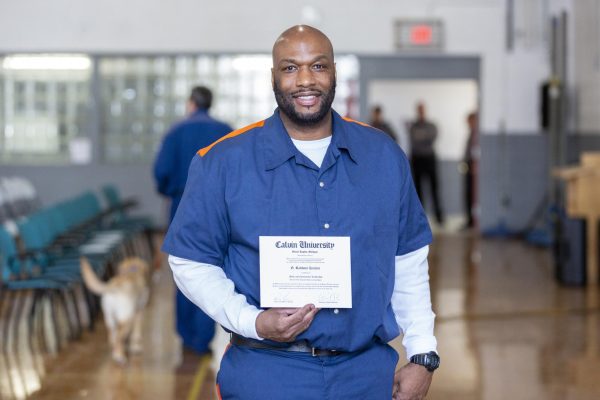
To exemplify the transformational success that Baker-Jackson influenced, G. Rabbani Kariem had this to say: “CPI has restored my feeling of purpose and strengthened my faith. After I complete my assignments, the sense of accomplishment it produces builds the confidence I need to continue this life-long journey of learning. The education I am receiving is preparing me for my vocation so that I may be of service when my neighbors become my assignment,” Kariem said. Kariem’s statement epitomizes the very transformation Baker-Jackson refers to and that CPI is designed to foster.
The participation and continuity among all members of the partnership showcases deliberate acts to promote change. This change culminates with impactful human interaction that encourages growth and stability in the otherwise uncertainty of each incarcerated student’s future. However, this metamorphosis is not possible without the valued trust and confidence each partner has for one another. This encourages CPI students to envision who they may become, whether as productive members in society upon their release or continuing behind these walls as impactful members of the prison community.



